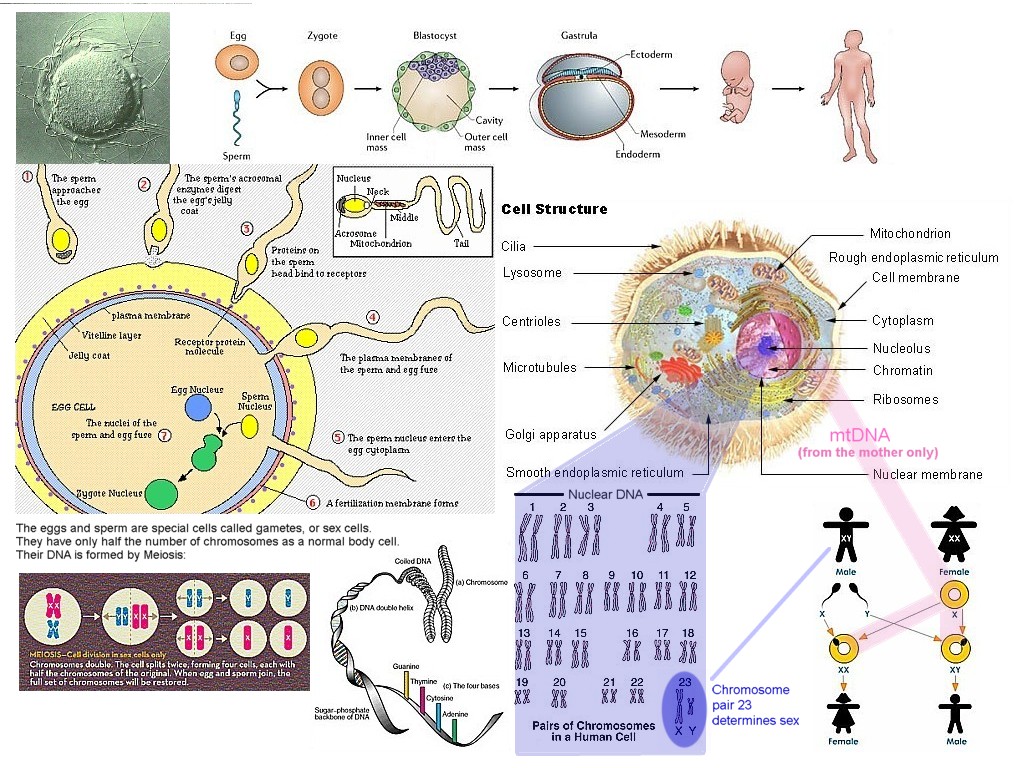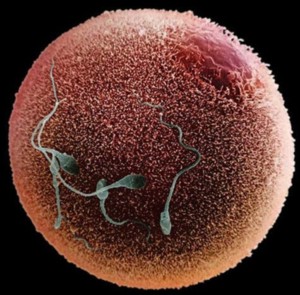What makes us human?
Different animals and plants have different numbers of genes and chromosomes that together make up their genome. Many are far more complex than humans. The 32 thousand human genes are organised into 23 pairs of chromosomes within each of our cells. But the protein-coding genes, that differentiate us, form only a fraction (about 1.5%) of the instruction and memory data that is stored in DNA. The remainder, coding for other aspects of cell chemistry, seems to be administrative overhead.
When human girls are born, they have about a million eggs in each of their two ovaries, nestled in fluid-filled cavities called follicles. But this number declines quite rapidly so that it is depleted by the time of menopause (usually before 50 years of age). Unless fertility treatment is in use, just one or sometimes two of these (apparently randomly selected) ova descends from the ovaries each menstrual period - down the woman's fallopian tubes where it (or they) may become fertilised if the woman has recently engaged in coitus (had 'sex').
As in vitro fertilization (IVF) demonstrates every day; we now understand that a unique version of your father's genome was injected into your mother's egg by just one of his millions of spermatozoa. So that when the two genomes merged a doubly unique cell, that became you, was the result.
Our genes, that are encoded in their DNA, come in equal proportion from both parents. Unless we have an identical twin, resulting from division of the zygote (see below) after fertilisation, each of us is genetically unique; our genetic identity determined by that successful fertilisation.

Human Reproduction - Click here to Expand
Within our species we are said to be of Caucasian or Asian or African appearance, to have dark or fair complexion and so on, and possibly to bear a ‘family resemblance’. These traits are due to the particular gene variants we have inherited from our parents.
These have been passed down to us, with regular variations, from parent to child, and through many ancestor species, since life began on the planet. And all plants and animals on Earth belong to a single family because we all inherit the same system of reproduction from one original replicating cell, our last universal common ancestor (LUCA) 3.5 to 3.8 billion years ago.

